
Tardive syndromes include a broad spectrum of abnormal movements. Which movement disorders can resemble tardive dyskinesia? Find out in the quiz.

Dr Miller is professor in the Department of Psychiatry and Health Behavior, Augusta University, Augusta, Georgia. He is on the Editorial Board and serves as the schizophrenia section chief for Psychiatric Times. The author reports that he receives research support from Augusta University, the National Institute of Mental Health, and the Stanley Medical Research Institute.

Tardive syndromes include a broad spectrum of abnormal movements. Which movement disorders can resemble tardive dyskinesia? Find out in the quiz.
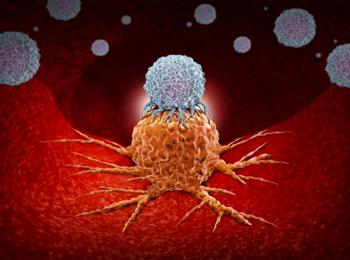
Two compelling case reports provide additional evidence for potential mechanistic associations between the immune system and schizophrenia.

Are psychiatric disorders such as schizophrenia and depression triggered by infections in early life?
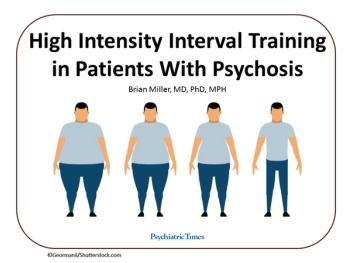
Physical activity should be considered an important part of the management of metabolic complications in patients with psychotic disorders.
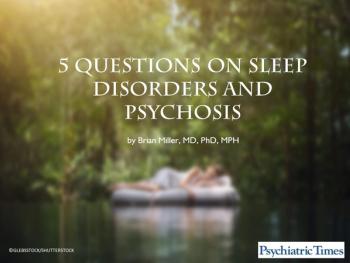
Sleep disruption is often overlooked in treatment planning for patients with psychotic disorders. Recent research provides insights in this 5-question quiz.

Given the evidence for progressive gray matter volume loss in first-episode psychosis, it is possible that leukocyte infiltration may contribute to brain tissue loss.

Study findings suggest that quetiapine is not a major teratogen, but the risk of malformations must be considered in the context of therapeutic risk-benefit balance.
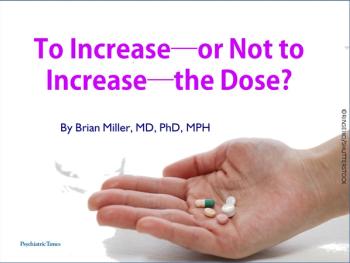
A brief discussion of dose increase versus unchanged continuation of antidepressants after initial treatment failure in patients with depression.

A review of glucose and lipid-related biomarkers and the antidepressant response to infliximab in patients with treatment-resistant depression.
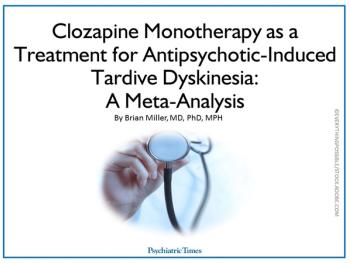
Tardive dyskinesia, an involuntary athetoid or choreiform movements, generally of the tongue, lower face and jaw, and extremities, is highly prevalent in patients with schizophrenia after long-term antipsychotic use. What about clozapine for TD?

What, if any, is the risk of major malformations following antipsychotic exposure in the first-trimester?
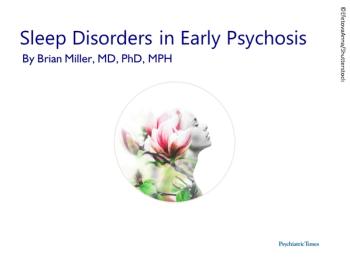
Sleep disturbance-including shorter sleep time and lowered sleep quality-is associated with increased psychotic experiences. So what's new?

Newly released evidence represents the most comprehensive currently available information about the initial choice of antidepressant treatment for acute depression in adults.
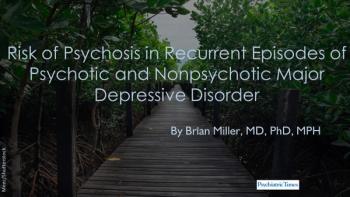
New findings raise the question of the optimal treatment for prevention of future psychotic depressive episodes.
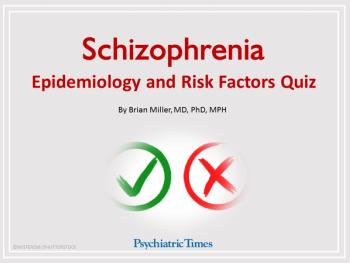
Test your knowledge on incidence of schizophrenia, risk factors associated with psychosis, gender and cultural distinctions, and more.

Children of parents with schizophrenia or bipolar disorder are themselves at increased risk of severe mental illness, and therefore are an important population to study the pathogenesis of these disorders.
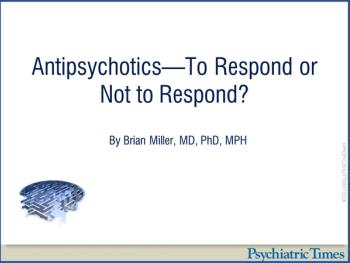
A new study brings us closer to answering why antipsychotics are successful in treating schizophrenia in some patients and not in others.

When patients ask, “How long should I continue antipsychotic treatment after the first episode of schizophrenia?”, consider this 20-year follow-up study.

A meta-analysis exploring factors associated with quality of life in first-episode psychosis provides guidance and take-home points for clinicians.
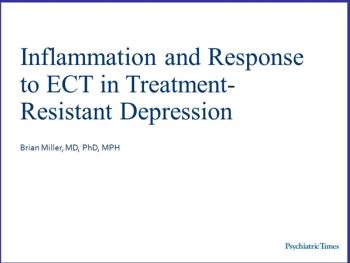
ECT is a highly effective treatment for depression, but a portion of patients fail to respond as hoped. Clinical variables have overall limited utility as a predictor of response. Is inflammation the key?

A gentle reminder to patients of all ages to “get moving” may go a long way in decreasing the risk of future depression.
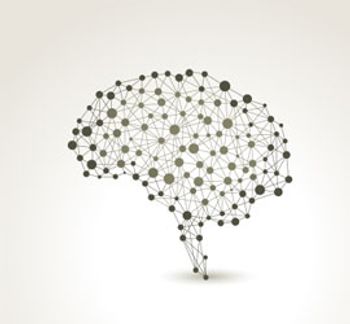
A novel compound holds promise for addressing cognitive deficits in schizophrenia.
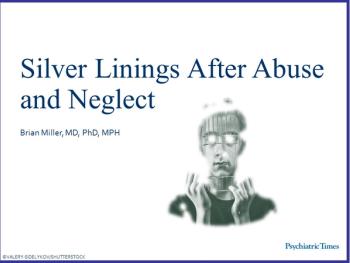
The neuroprotective role of resilience in patients with schizophrenia who experienced early childhood trauma is evaluated in this brief update.

Handgrip is a simple proxy for muscular strength and a clinically useful measure of muscular function. What are the neurophysiologic underpinnings of the relationship between handgrip strength and cognition?
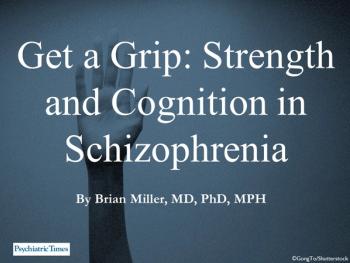
Handgrip is a simple proxy for physical strength and a clinically useful measure of muscular function. What about cognitive function in patients with schizophrenia? A large study looked into just that.
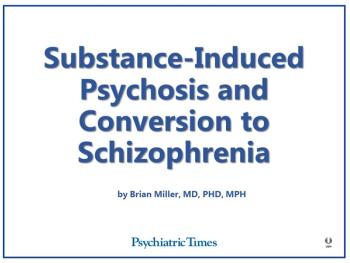
Up to 50% of cases of cannabis-induced psychosis covert to schizophrenia. A new study provides striking evidence for abuse of other substances and schizophrenia onset.
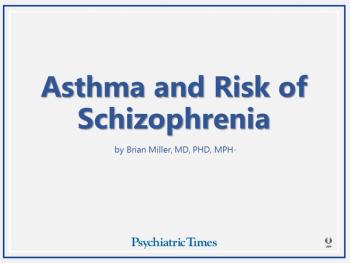
Is there a link between childhood and parental asthma and risk of schizophrenia?
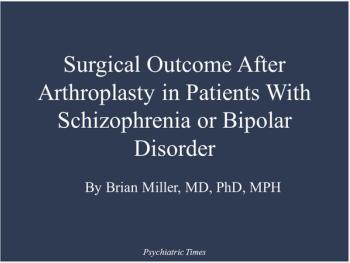
Anxiety and depression are associated with increased complications after total joint arthroplasty. Is the same true of bipolar and schizophrenic disorders?

An overview of the first study to demonstrate benefits of sodium benzoate--an NMDA enhancer--in patients with clozapine-resistant schizophrenia.
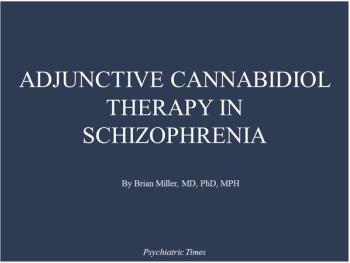
New research looks at the effects of CBD on positive and negative psychotic symptoms, cognitive performance, level of functioning, and the treating psychiatrist’s overall clinical impression.